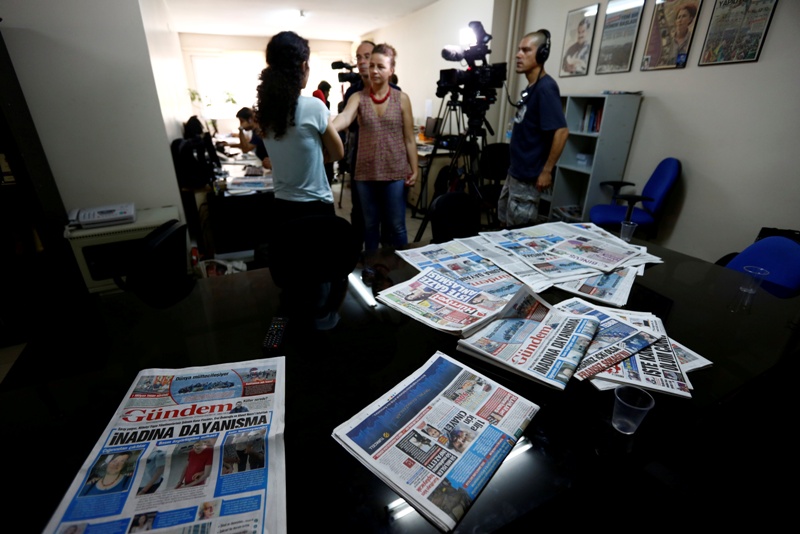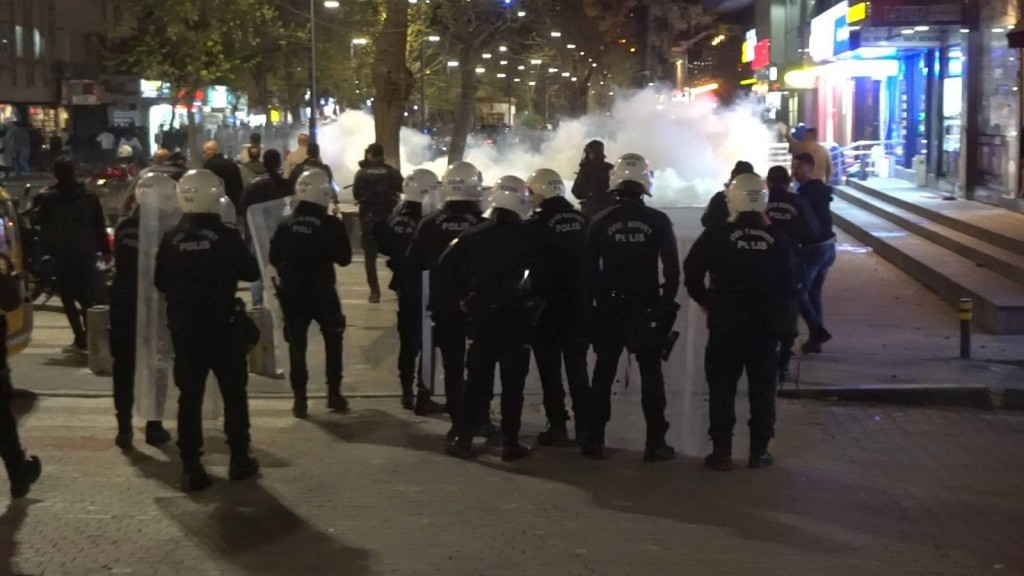An Istanbul court yesterday ordered the newspaper temporarily suspended, saying that it repeatedly spread PKK propaganda and acted as the group’s media organ.
But IPI said that the case highlighted the problematic nature of overly broad anti-terrorism legislation in Turkey and it called for the suspension to be lifted.
“News reports about the PKK and its members are of legitimate and undeniable public interest to Turkey’s public, as are reports about the government’s campaign against the group,” IPI Director of Advocacy and Communications Steven M. Ellis said. “Reporting about terrorism should not be equated with support for it, and we fear that sweeping information about the fight against the PKK under the rug likely will not only diminish public understanding of the conflict, but prolong it.”
The PKK – which the United States, the European Union and Turkey label a terrorist organisation – has waged a 30-year campaign of attacks and bombings in Turkey seeking greater cultural and political rights for Kurds. More than 40,000 people, mostly Kurds, have died in the violence.
Negotiations aimed at ending the group’s insurgency collapsed in July 2015, ahead of Turkey’s snap parliamentary election. Since then, conflict between Kurds and Turkey’s government has resumed in the country’s southeast, leaving large swathes of cities in the region devastated and hundreds of police, soldiers and militants – as well as hundreds of civilians – dead.
The closure of Özgür Gündem comes amid an ongoing state of emergency following the July 2016 failed coup giving President Recep Tayyip Erdoğan and his cabinet authority to rule by decree. The state of emergency has brought a crackdown on nearly all aspects of society as Erdoğan seeks to consolidate power and purge followers of U.S.-based Muslim cleric Fethullah Gülen, who Turkey’s government alleges directed the coup, from public positions.
In recent weeks, some 130 media outlets have been shuttered, 42 journalists have been detained and warrants have been issued for the detention of 100 more, journalists have been banned from travelling and their passports revoked, and numerous journalists’ press cards have been cancelled.
However, the order against Özgür Gündem is not directly related to the state of emergency. Prior to the failed coup, Turkey was holding 32 journalists in prison, 22 of them from Kurdish media. Moreover, Kurds have accused Gülenists of hindering negotiations between the PKK and Turkey’s government and orchestrating a massive campaign of arrests beginning in 2009 targeting the Union of Kurdistan Communities (KCK), which authorities labelled the “urban wing” of the PKK.
Journalists from Özgür Gündem were among dozens arrested in late 2011 in connection with the KCK case on allegations that they acted as a media organ for the group. The newspaper has faced multiple government investigations and significant pressure since it began publishing in 1992. It was banned outright from 1994 to 2011, and its website has been blocked in recent years.



